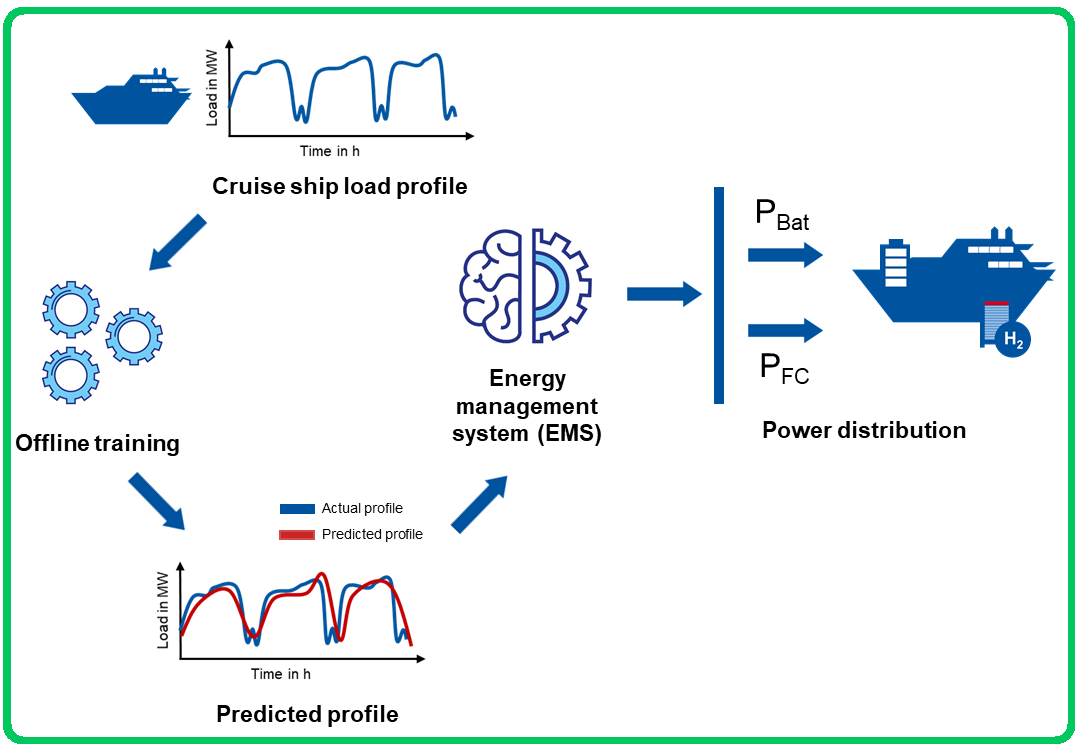Cem Ünlübayir from RWTH (Rheinisch-Westfälische Technische Hochschule Aachen) will present at Advanced Battery Power Conference (28th -30th March 2022) an energy management concept with a load-prediction engine that aims to improve the fuel economy of a hybrid maritime propulsion system.
⇒ Find a poster P4-013
In order to reduce anthropogenic greenhouse gas emissions, novel and clean propulsion technologies are being developed in the maritime sector. Hybrid powertrains consisting of batteries and fuel cells represent a good alternative to conventional propulsion systems due to their potentially high energy and power density and low emissions. By employing prediction algorithms, that forecasts upcoming load demands and effectively transfer power amongst the propulsion components, intelligent energy management may enhance fuel efficiency even further. A load-prediction engine based on machine learning is proposed to improve the fuel efficiency of a cruise ship's hybrid propulsion system consisting of a high-voltage lithium-ion battery and a high temperature solid oxide fuel cell (SOFC).

Schematic representation of the functionality of the energy management system with a prediction engine.
This novel energy management concept is developed within the #NAUTILUS_2020 project that investigates novel propulsion system for modern sustainable shipping. This novel hybrid propulsion system of for a cruise ship is powered by a solid oxide fuel cell (SOFC) and a Lithium-Ion battery. Read more about the next-generation propulsion system for cruise ships HERE.
⇒ Interested in the energy management of the hybrid propulsion system of a large passenger ship?
Stay in touch with us!
#NAUTILUS_2020 #propulsionsystem #sustainableshipping #battery #fuelcell #cruiseships
***
⇒ Follow us on Twitter/LinkedIn to be on board.
Follow #NAUTILUS_2020
NAUTILUS is a short for Nautical Integrated Hybrid Energy System for Long-haul Cruise Ships.

This project has received funding from the European Union’s Horizon 2020 research and innovation program under grant agreement No 861647.

